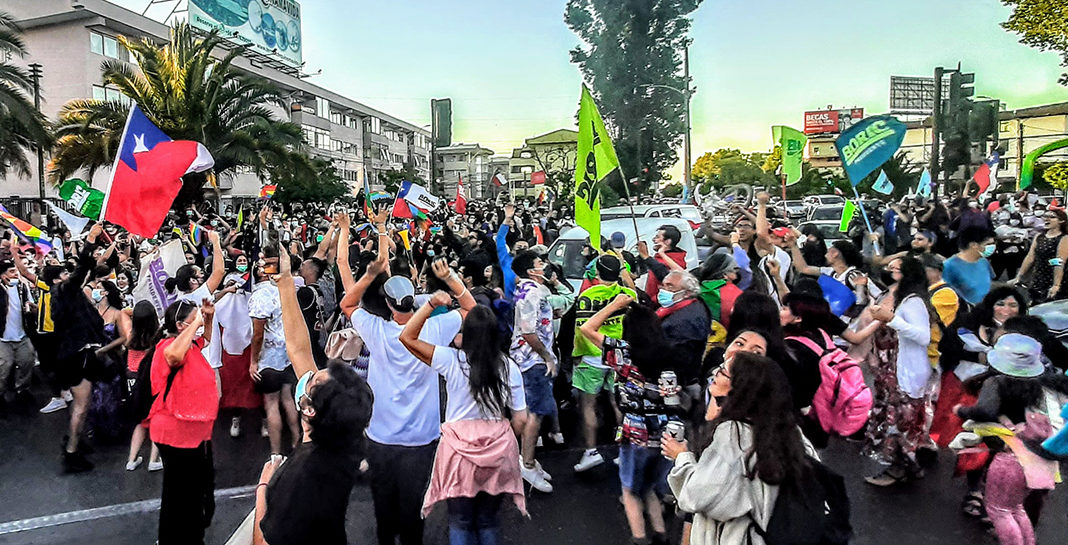On 19 December Chile celebrated Christmas early with the election of its youngest ever president, Gabriel Boric, comfortably defeating his ultra-right wing opponent José Antonio Kast in the second round. The result reversed that of the first round on 21 November when a high level of abstention, among other factors, had given a narrow advantage to Kast. Galvanised by fears of a return to the values of the Pinochet period, young people, especially, rallied to Boric. LAB’s Natasha Tinsley sought out some of those people, both Boric and Kast supporters, to gauge their response, their expectations of the new government and their hopes for the future.
‘I could never leave my country. Even if far-right candidate José Antonio Kast had won the presidential elections in Chile, I’d have stayed to resist. I’m too accustomed to pushing for change. I wouldn’t know what to do with myself in the first world, where things are already settled’, says Paz Tondró, 25, from Santiago. ‘It’s the vision we’d all like for Chile, but I’m staying here because my country matters to me – and even more so now, with our new government’.
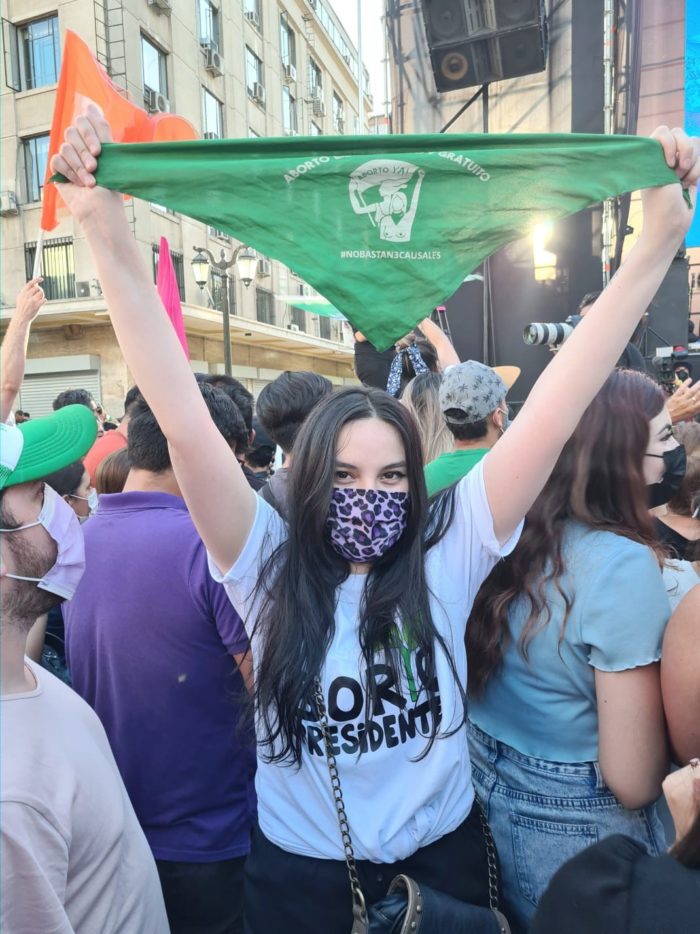
As a representative of the Feminist Front of Convergencia Social, Paz affirms, ‘I first heard the news [of Boric’s win] on my way to meet the group. Whatever the outcome, we’d sworn to stick together. It was announced on the radio and everyone around me went crazy – car horns honking, flags waving out the windows… It was breathtaking. I got into politics when I was 14 years old and it’s incredible how far we’ve come since then.’
With today’s challenges, Chile’s youngest voters have been hoping for a President who understands them. ‘I’d rather have a young person like Boric step up to the plate,’ says Vicente Martínez, 24, from Viña del Mar. ‘They don’t need to know all the tricks of the trade – quite the opposite. They need to realise we don’t feel represented by politicians who’ve been playing the same game since the ’70s. Everything that provoked the estallido social [social outbreak] of 2019 were problems Boric had kept an eye on since 2011.’
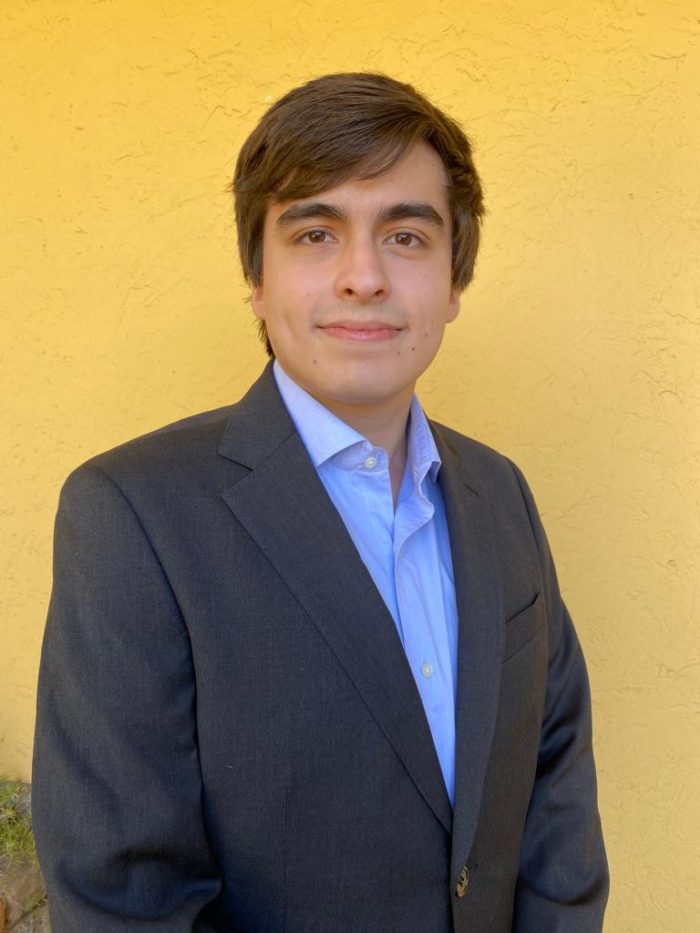
This couldn’t be more at odds with the feelings of Kast-voters, like Felipe Zapata, 25, from Santiago. ‘Boric has been clever at pulling the wool over our eyes. For me, the second round represented democracy or communism and so, of course, I voted for democracy.’
Others took an international perspective when voting. Tomás Águila, 24, from Punta Arenas, voted for Kast but rejects the comparison with figures like Jair Bolsonaro or Donald Trump. ‘If anything, you could label him a Bolsonaro with very good manners, because he’s more cautious with his speech. In any case, I don’t think either side is the right path for Chile.’
Boric’s comeback
In Chile, the president is elected using a two-round system. If no candidate receives a majority in the first round, a second round is held between the two candidates who received the most votes.
In the first round on November 21, Kast prevailed with a narrow advantage of 2.08 per cent of the votes. In the second on December 19, Boric secured 55.87 per cent of the vote, comfortably defeating Kast’s 44.13 per cent by over 1 million votes. There are various interpretations as to how Boric recovered his disadvantage.
‘For me, it was when memories of the dictatorship resurfaced in the media,’ says Tomás Águila. ‘Kast was the candidate who defended the dictatorship – an open wound for Chile. So when Lucía Hiriart, the widow of Pinochet, passed away only three days before the second round, this was damaging for Kast as it was fresh on people’s minds.’
‘The female vote was also key to Boric’s success, especially in the north’, he goes on to say. ‘Kast’s Republican Party had a very poor record in terms of gender rights. Many members, like Johannes Kaiser, were just plain sexist, and there was even a video of him questioning women’s suffrage circulating on social media just prior to the second round.’
Felipe Zapata backs this theory, reminding us that women under 50, and especially under 30, were instrumental in Boric’s success. ‘In fact, Boric had the majority across all age groups under 70, whereas Kast had the majority among all those over 70 – those voters who lived to witness the period of communism [he means the Popular Unity government of 1970-73] here in Chile.’
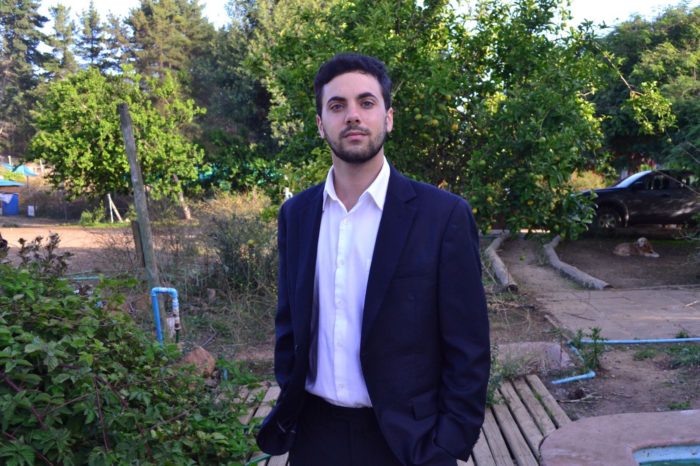
Others, like Daniel Levrini, 24, from Algarrobo, put it down to changes in Boric’s language, especially his promises to crack down on violence. ‘Boric hadn’t mentioned crime and safety much before, but these became a priority after the first round. He started visiting deprived areas, pledging more police stations and a halt to drug trafficking, which worked in his favour.’
Boric also gained support from well-known politicians of the recent past, despite many voters thinking they could have opposed him. ‘Figures from the centre-left, such as former president Ricardo Lagos, had always been criticised by Boric’s Frente Amplio coalition. It was surprising to see them now show such determined support for Boric. But naturally none of them would support Kast, who couldn’t so easily appeal to the rest of the political spectrum.’
‘It was an anti-Kast vote, more than a pro-Boric one,’ according to Vicente Martínez. ‘Until 2015, Chile was always dominated by two parties. In every election, we all knew who would make it through to the second round. With Boric, it was the first time in thirty years we saw a different party with a real chance of winning. Anyone against Kast’s fascist profile had no choice but to vote for Boric.’
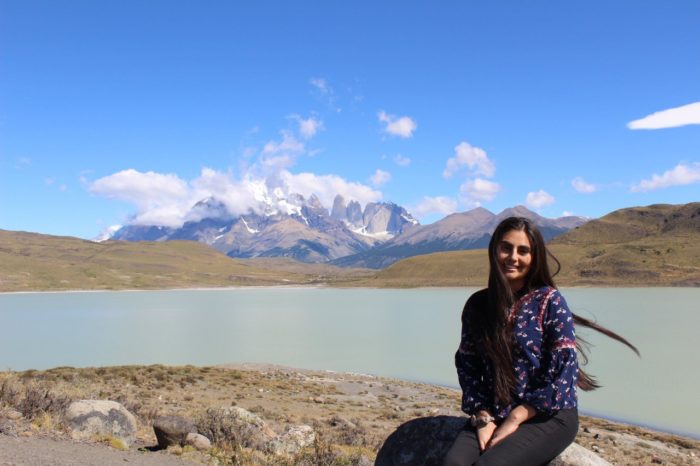
‘In the first round, we were wrong about how people relate to politics’, suggests Javiera Allendes, 27, from Valparaíso, who helped in Boric’s campaign. ‘We’d become complacent, believing people would feel inclined to go out and vote without us having to push them. After the result, we developed more empathy. Instead of believing we were doing everything right, we were more aware of those who didn’t feel listened to or included in the project.’
‘We had a month to turn the situation round and, out of sheer fear, everyone understood the urgency’, remarks Paz Tondró. ‘They don’t teach us civic education at school. The importance of voting isn’t institutionalised, and it’s not compulsory. 2021 saw five elections in Chile. Those who go out to vote are those who have the time to do so, and that tends to be people who are better off – a lot of whom voted for Kast.’
What about the Constitution?
In October 2020, 78 per cent voted in a referendum to replace Chile’s Constitution of 1980, drawn up by conservative ideologue Jaime Guzmán under dictator Pinochet. The following May voters selected those who would draft the new Constitution, making up a body known as the Constitutional Convention (CC).
Rewriting the constitution provides a ‘hopeful start and lays the foundations to create a Chile we’re all happy in’, notes Javiera Allendes. ‘But let’s not forget, Boric only has four years’, she reminds us: ‘It won’t all be implemented in that period.’ ‘We have to understand, the new Constitution doesn’t turn Chile into Europe overnight – where things work well’, adds Paz Tondró, ‘It’s a continuous job and takes a long time.’
Many regard the current Constitution as the root of current problems such as poor healthcare. ‘Health is not a right, rather a commodity in Chile – and that’s down to the Constitution’, according to Paz Tondró. ‘You have the choice of being treated by the public or private system. Most of us are restricted to this public system but, because we pay little in tax, that system is truly deplorable. Our current Constitution means money can buy you a better life.’
Young people in Chile stress the importance of a democratic Constitution: ‘The present one is fundamentally flawed and we have to get rid of it’, comments Tomás Águila. That said, he recalls that a new Constitution wasn’t in the top ten priorities of Chileans before the estallido social of October 2019, a series of mass demonstrations and riots that broke out in every region of the country.
Some are concerned about the problems a new Constitution could cause and the danger of ignoring these. ‘It’s been used maliciously by left-wing elites, who link it to a better quality of life’, says Daniel Levrini. ‘They’ve banged on about the far-reaching changes it will make, but it’s dangerous for people to have such high expectations.’
‘They see an opportunity to break free of the crisis. But changing the whole basis of the system isn’t necessarily the solution’, he continues. ‘Yes, there’s a chance, but I think it depends on how we view the estallido social. Some speak of Chile as being such an unequal country that, one day, Chileans simply couldn’t stand it any longer and took to the streets to make their voices heard. I feel that’s really reductionist.’
‘What they don’t mention is modernisation. Chile reduced poverty rapidly and, despite inequality, we’ve improved a lot. So when politicians promise the Constitution will do away with inequality, it’s misleading. When people realise how complicated it would be to achieve that in such a short period, there’ll be a lot of frustration.’
Gender parity. Will it be a game changer?
Chile is the first country in the world to rely on gender parity among those drawing up the new Constitution, with 77 of 155 members of the CC being women. ‘It’s already completely changing the dynamic’, declares Vicente Martínez.
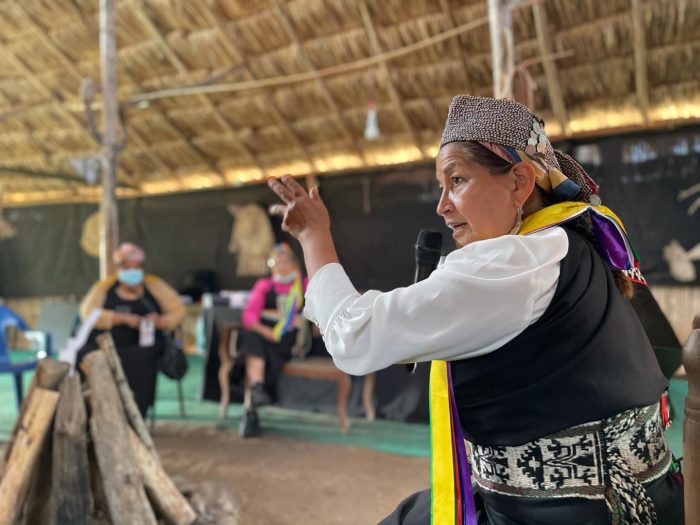
‘The last president of the CC, Elisa Loncón, had a very feminist and traditionally feminine perspective. She spoke of being open to dialogue and initiating it with tenderness – the kind of thing women are generally more likely to bring to the table than men, who have always played vicious, dirty politics. The atmosphere is a lot healthier now and that’s probably down to the women’s solidarity, their way of doing things.’
‘The women elected are better candidates than the men – more moderate and composed. It’s been really positive’, agrees Tomás Águila.
Yet many Chileans feel their patriarchal society undermines equal representation. ‘Yes, it’s a step in the right direction, but our society is sexist’, remarks Paz Tondró. ‘Women don’t want to be superior, rather to be alongside men and not behind them. I don’t know if I’ll live to see the day when that happens.’
She goes on to provide an example of men refusing to make space for women in politics: ‘Last night were the CC elections for a new president. If no one candidate has enough votes, they keep voting until someone does. Cristina Dorador only needed 6 votes, but none of the men, who needed about 60 votes and therefore had no chance of winning, could bring themselves to give up their candidacy for her. 18 hours later, she was the one who had to back down.’
‘Parity of representation can be a great measure to remind us that men and women should have the same influence. But if these changes aren’t reflected in culture or education, they don’t work’, says Daniel Levrini.
Javiera Allendes agrees that gender parity has to be implemented much more widely. ‘I trust this is something Boric will carry out. The first proposal he made as candidate to the primaries was that all directors of large companies should rely on gender parity to boost opportunities for women. He’s never brushed the issue aside.’
Worries about Communist Party dominance
Many young people in Chile are concerned about the role of the Communist Party. ‘I voted for Kast because the Communist Party was part of Boric’s coalition’, states Tomás Águila. ‘In Chile there’s an unshakeable sense of anticommunism and that’s mostly justifiable. People forget that members of the Communist Party didn’t believe in democracy as a means of securing change and turned straight to armed struggle. That gave rise to the extreme polarisation we see today.’
‘As the biggest party of the coalition, they’ll be sure to remind Boric of their prominence, claiming they deserve at least a half or a third of the posts in government. The moment he gives them prominence, that’s when the problems will start.’
Yet Paz Tondró assures, ‘The Communist Party has the same influence as all the other parties in the coalition. It’s not the only one in government. There are several of us, and Boric is holding talks with more traditional parties too, to make his government even broader.’
‘The problem with the Communist Party isn’t its influence, but how hierarchical it is’, Daniel Levrini observes. ‘As much as they’re democratic and engage in dialogue, they’re inflexible when it comes to decision-making. They won’t compromise. It doesn’t mean Chile will become a communist country, but it’s going to be an obstacle for the President’s new policies.’
‘The fear is real, but we know Boric doesn’t support how the Chilean Communist Party or other communist leaders in Latin America act’, comments Vicente Martínez. ‘He’s always condemned what goes on in Cuba and Venezuela, come to that.’
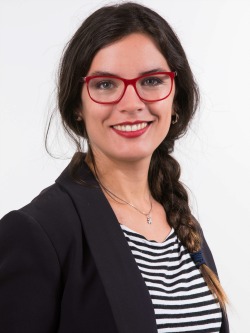
‘The most important figure in the Communist Party is Camila Vallejo, who’s young and, like Boric, was a student protest leader in 2011. She’s not a threat, as she’s nothing like traditional communists with their old-fashioned practices. So I really don’t see the problem. If anyone dominates, it will be her, and she’s got a much more moderate, progressive vision than the rest.’
Javier Allendes asserts, ‘I have some reservations about the Communist Party, as their arguments are gaining ground and we mustn’t take our eyes off them. But I don’t share this anticomunist fear people try to impose, as it has never been the Communist Party which led a coup in Chile.’
‘This is a diversion, designed to obscure the real objective of the project, which is welfare, dignity, and social justice. It shouldn’t be absurd to focus on that. Now they’re part of the coalition, they’re important agents of bringing change, and are completely committed. If there’s any party that’s never dissociated itself from fulfilling Chile’s expectations, it’s precisely the Communist Party.’
Biggest hopes for 2022
As Chile’s young people reflect on their hopes and dreams for 2022, a commonly shared desire is to remove the fear of saying what one thinks. ‘This has to be done with the collective consciousness not just of what’s affecting me, but what affects my neighbours and the community as a whole’, pledges Javiera Allendes.
‘I hope this translates to positive legislative results, because in a good democracy we’d hope the President doesn’t monopolise all the power, which is what happens at the moment under the current Constitution.’
Others want the government to learn from international experience. Vicente Martínez, who also yearns for a year of peace, remarks, ‘Boric should go straight to Spain or other countries with experience in social democracy and younger presidents to find out what went right and what didn’t work so well.’
‘The President has to be someone who sparks something in his people – and is capable of moving them… Some things will have to wait until next year or the next government. But for now, we have to remember: Boric’s all we’ve got.’
A Constitution that differs from others in Latin America is also on the wish-list. Daniel Levrini resents their perpetuation of presidential power and adds, ‘I want to stop all this prattle about whether it’s Pinochet’s Constitution or not, and get down to discussing the content, entrusting it to people who know what they’re doing.’
‘As critical as I am of Boric, as a Chilean citizen, I wish him well. I like to have hope in him. It means I want the best for my country.’

